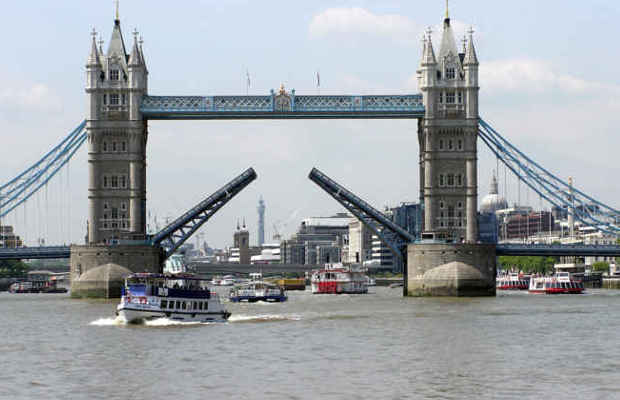London tops the list of Europe’s cities for international travel
London has generated more spend from international visitors than any other city in Europe, according to a new report launched by the World Travel & Tourism Council (WTTC). In 2016, international visitors spent in the region of 18.9 billion Euros in London, more than in any other city in Europe. Visitors from within the UK spent a further 2.94 billion Euros. Overall travel and tourism directly employs 228,000 jobs in the capital and in terms of travel and tourism GDP contribution, London accounts for nearly 19 per cent of the UK’s total.
Other cities which make up the top five for international spend in Europe are Istanbul (17.5 billion Euros), Barcelona (13.6 billion Euros), Amsterdam (11.8 billion Euros) and Paris (10.4 billion Euros).
Europe City Travel & Tourism Impact is one of a series of reports by WTTC which looks at the contribution of travel and tourism to city economies and job creation. The study covers 65 cities, 17 of which are in Europe. The report launch coincides with the opening of World Travel Market at London’s Excel Centre – the leading global event for the travel industry which attracts 5,000 exhibiting destinations and 51,000 travel professionals to the city.
Gloria Guevara, president and CEO, WTTC, said, “London is a truly international city and the ‘London is Open’ campaign has given a very strong message of welcome to tourists from abroad, which, with a great offering and unique experiences for tourists, means the UK’s capital has gained the top spot when it comes to international tourism to cities in Europe. Uncertainty around Brexit and the impacts of terrorism will put pressure on the city’s tourism sector in 2017, however our data suggests that London is well placed to be resilient against these challenges. We expect international tourism spend to increase by seven per cent every year over the next 10 years.”
European cities are resilient to terrorism impacts
Following attacks in January and November 2015, international arrivals to Paris decreased by eight percentage points. However, forecasts suggest that tourism’s contribution is set to rise and return to four per cent of the city’s GDP in the coming years.
Brussels experienced a fall in international demand of 17 percentage points following the attack in March 2016, however overall the city’s travel and tourism sector grew at double the rate of Belgium’s over the past 10 years (2.1 per cent per year, compared to 1.1 per cent for Belgium), and is forecast to continue to grow at a rate of 7.3 per cent per year over the next decade.
Antalya and Istanbul, both impacted by terrorism and political instability in Turkey, are expected to grow at 8.6 per cent and 9.8 per cent over the next 10 years, faster than any other European cities.
Cities’ contribution to Europe’s travel and tourism sector set to increase over next 10 years
The report highlights the overall importance of cities for Europe’s travel and tourism sector. The 17 cities studied account for 18 per cent of the region’s total, rising to 25 per cent by 2026. Three of the cities – Prague, Dublin and Brussels – generate more than 50 per cent of their country’s travel and tourism GDP; and a further seven generate more than 25 per cent (Warsaw, Stockholm, Lisbon, Amsterdam, Istanbul, Paris and Moscow).
The research also quantifies the contribution of travel and tourism to employment in these cities. In Amsterdam, 9.8 per cent of employment (one in 10 jobs) is directly generated by tourism, compared to 8.4 per cent in Prague, seven per cent in Lisbon and 6.5 per cent in Berlin and Munich. Across all 17 cities, travel and tourism’s proportion of employment by is set to increase over the next 10 years, highlighting the growing importance of the sector as a generator of jobs.
Guevara added, “This research highlights, for the first time, the economic contribution of travel and tourism to European cities in terms of GDP and jobs. It clearly shows that cities are important drivers of tourism across the region, and that cities themselves benefit significantly from the sector. City authorities should prioritise tourism development, and integrate it into long-term planning, infrastructure development and sustainable public policies. In recent months we have seen the challenges of increasing tourism to cities such as Amsterdam and Barcelona. WTTC has invested in this research to further understanding of tourism’s economic impacts as authorities try to strike the balance between visitor numbers and their economic benefits.”

